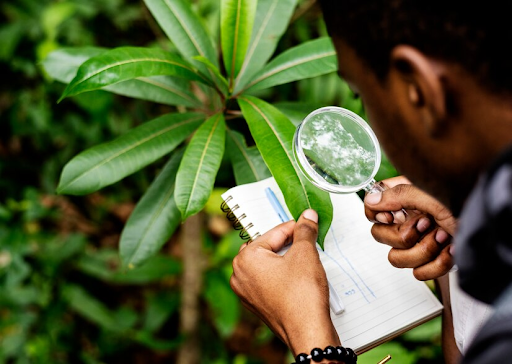How can farmers increase productivity while conserving vital resources like water, soil, and energy? The solution lies in precision agriculture, a revolutionary methodology that combines cutting-edge technologies to maximize farming techniques. By employing methods such as GPS mapping, remote sensing, and data analytics, precision agriculture enables farmers to make effective choices, avoiding wastage of resources and maximizing efficiency.
With climate change and population pressure on food production worldwide, embracing sustainable agriculture technology is no longer a choice—it’s a requirement. This blog discusses the role of precision agriculture in conserving resources and how it is redefining the future of agriculture.
What is Precision Agriculture?
Precision agriculture is a technology-based farming practice that allows for interventions to be made at the right place and time, minimizing inefficiencies in resource utilization. It entails:
- GPS and Geographic Information Systems (GIS) – Fields to map soil conditions and crop health.
- IoT Sensors and Drones – Real-time monitoring of moisture, temperature, and crop health.
- Variable Rate Technology (VRT) – Changing water, fertiliser, and pesticide application according to individual field needs.
- Big Data and AI Integration – Offering predictive analytics to make farming more efficient.
With the help of these technologies, farmers can increase productivity while lowering the environmental footprint to a great extent.
How Precision Agriculture Helps in Resource Conservation
1. Water Conservation
Water wastage has been one of the largest agriculture challenges. Conventional irrigation practices tend to result in overwatering, draining groundwater, and rising production costs.
Precision agriculture solves this problem in the following ways:
- Soil Moisture Sensors – Measure actual water levels in real-time and set optimal irrigation schedules.
- Drip Irrigation and Automated Sprinklers – Apply water to plant roots, reducing waste.
- Weather-Based Irrigation Systems – Modify watering patterns according to climatic data.
Through the adoption of sustainable agriculture technology, water can be saved by farmers as they use water efficiently while maintaining the health of crops.
2. Soil Health Management
Degradation of soil is one of the concerns in traditional farming, where a high application of fertilizers and chemicals drains basic nutrients. Precision agriculture assists with:
- Site-Specific Nutrient Management – Delivering the optimum quantity of fertilizers according to soil requirements.
- Reduced Tillage Practices – Maintaining soil structure and preventing erosion.
- Cover Cropping and Crop Rotation – Increasing soil fertility and microbial activity.
Farmers may be able to attain long-term sustainability with lower reliance on chemical inputs by improving the health of soils.
3. Effective Use of Fertilizers and Pesticides
Excessive use of fertilizers and pesticides results in the pollution of soil, water, and rising farming costs. Precision agriculture maximizes chemical use by:
- AI-Driven Pest Detection – Early detection of pest infestations and targeted treatments.
- Variable Rate Fertilization – Nutrient application according to crop needs instead of uniform distribution.
- Drone-Based Crop Monitoring – Detection of diseased crops and proactive resolution of issues.
These techniques prevent chemical runoff, enhancing farm productivity as well as environmental health.
4. Energy Conservation
Agriculture is highly energy-dependent, with fuel-driven equipment and irrigation systems. Precision agriculture supports energy conservation by:
- Automated Farm Equipment – Reducing fuel consumption through effective use of machinery.
- Solar-Powered Irrigation Systems – Reducing reliance on non-renewable energy sources.
- Smart Greenhouse Technologies – Employing AI for temperature and light control, maximizing energy utilization.
Through the incorporation of sustainable agriculture technology, farmers are able to minimize energy costs and decrease their carbon footprint.
The Future of Precision Agriculture in Resource Conservation
With advances in technology, precision agriculture is likely to have an even larger contribution to sustainable agriculture in the future. Some of the advances expected include:
- AI-Powered Farm Analytics – Providing real-time analytics for improved decision-making.
- Blockchain for Supply Chain Transparency – Providing transparency for traceability of sustainable agriculture practices.
- Automated Robotics in Farming – Increasing efficiency while minimizing human intervention.
Due to encouragement by governments and agencies, precision agriculture will continue to transform the face of agriculture.
Conclusion
Precision agriculture is revolutionizing the way farmers manage resources, minimizing waste while maximizing efficiency. From water and soil conservation to reducing chemical use and maximizing energy use, this technology-driven method is central to sustainable food production.
As a pioneer in sustainable agriculture technology, ASQI is dedicated to driving precision agriculture solutions toward improving farmers’ productivity while safeguarding the environment. Through innovation, ASQI is laying the foundation for a more resource-conserving and sustainable future for agriculture.







